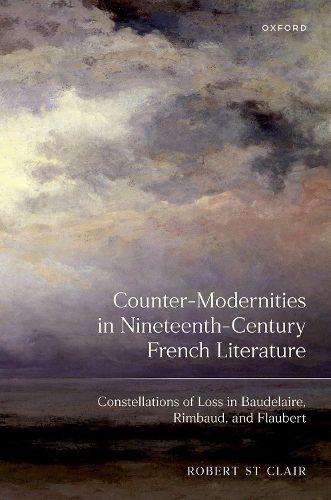Readings Newsletter
Become a Readings Member to make your shopping experience even easier.
Sign in or sign up for free!
You’re not far away from qualifying for FREE standard shipping within Australia
You’ve qualified for FREE standard shipping within Australia
The cart is loading…






Counter-Modernities in Nineteenth-Century French Literature explores a counterview of modernity in late nineteenth-century French literature (1848-1891). The principal claim of this book is that what we find in the works of Baudelaire, Rimbaud, and Flaubert is a form of 'writing against the grain' of history: not the elegant lyricism of history's victors, but a use of literature against the erasures of past injustices and for those 'lost futurities' upon which the order of the present is founded. What we find, in other words, is a critical literary archive of the powerless that persists in contesting the legitimacy of the powerful, which persists in haunting the nineteenth century every bit as much as it does our own achingly out-of-joint present. The story Counter-Modernities seeks to tell is, in other words, about the meaning of loss, and the significance of losers as possible figures of opposition to the dominant order, in nineteenth-century French literature that is also a story about modernity as an aesthetic politics. What brings together the authors in this study, however, cannot be reduced be the biographical: that is, to the uneven successes, financial hardships, and, in one case, outright failure (i.e., Rimbaud) shared by the authors in the literary market of their lifetime. At stake in this study is not an account of the ironies of literary history, wherein, to gloss Walter Benjamin's take on Baudelaire, a prior and benighted era sees little of interest in an artist in which a later epoch recognizes the
$9.00 standard shipping within Australia
FREE standard shipping within Australia for orders over $100.00
Express & International shipping calculated at checkout
Counter-Modernities in Nineteenth-Century French Literature explores a counterview of modernity in late nineteenth-century French literature (1848-1891). The principal claim of this book is that what we find in the works of Baudelaire, Rimbaud, and Flaubert is a form of 'writing against the grain' of history: not the elegant lyricism of history's victors, but a use of literature against the erasures of past injustices and for those 'lost futurities' upon which the order of the present is founded. What we find, in other words, is a critical literary archive of the powerless that persists in contesting the legitimacy of the powerful, which persists in haunting the nineteenth century every bit as much as it does our own achingly out-of-joint present. The story Counter-Modernities seeks to tell is, in other words, about the meaning of loss, and the significance of losers as possible figures of opposition to the dominant order, in nineteenth-century French literature that is also a story about modernity as an aesthetic politics. What brings together the authors in this study, however, cannot be reduced be the biographical: that is, to the uneven successes, financial hardships, and, in one case, outright failure (i.e., Rimbaud) shared by the authors in the literary market of their lifetime. At stake in this study is not an account of the ironies of literary history, wherein, to gloss Walter Benjamin's take on Baudelaire, a prior and benighted era sees little of interest in an artist in which a later epoch recognizes the